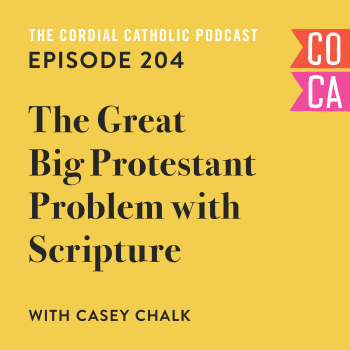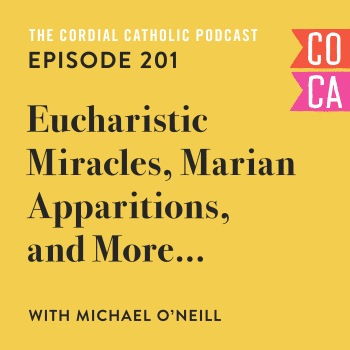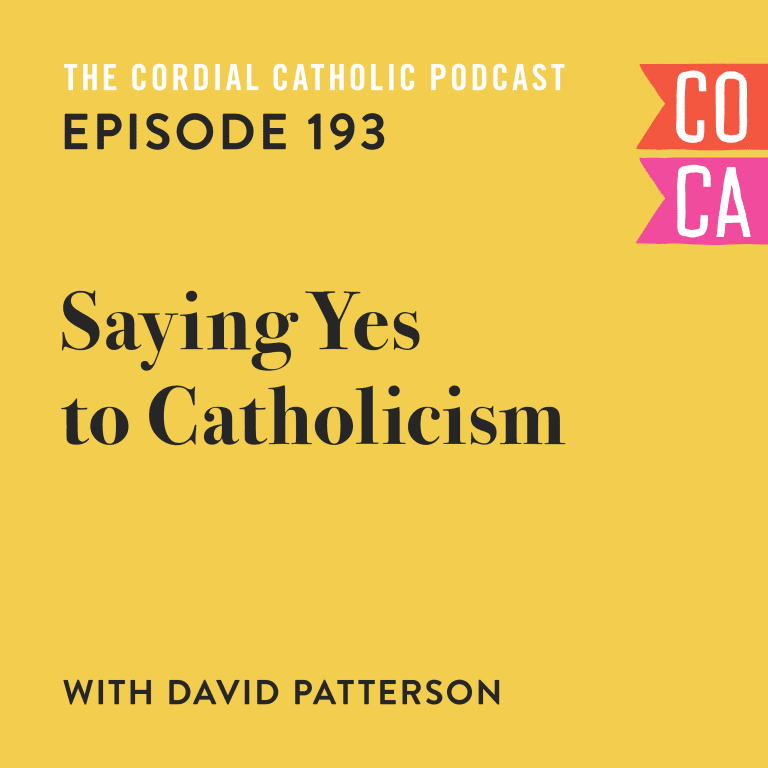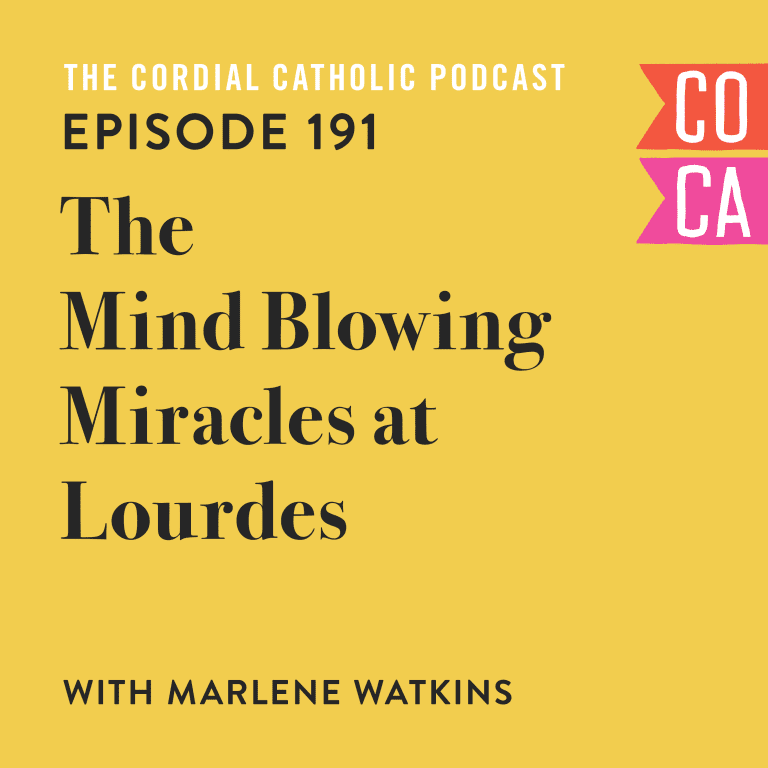
Since digging deeper into Catholic theology it’s become clear to me that, for those who swear by a literal interpretation of Scripture, the Catholic understanding of the Lord’s Supper should be the most preferable.
The sixth chapter of the Gospel of John is a fascinating one for a number of reasons. First, John records Jesus turning a little’s boys meager offering of five loaves and two fish into enough food to feed five thousand men (not counting women and children). Next, John records Jesus walking across the water, meeting the disciples as they crossed the sea of Capernaum in a boat. And then, Jesus says that we must, literally, eat His flesh.
The Lord’s Supper, as held by Christians, is the renewal or memorial of the New Covenant, the death of Jesus which has redeemed us, and creation, for all time. We live in this New Covenant and the Old Covenant of the Jewish people, the sacrifices and legal framework, is no longer necessary. The Lord’s Supper, Jesus Himself tells us, is that renewal or the memorial of this new covenant with God.
Catholics, in particular, hold that when Jesus commanded us to eat and drink His flesh He meant it literally. Other mainline Protestant denominations, like Lutherans and Anglicans, believe similarly although the mechanics of the miracle are different. The evangelical circles I’ve run in—Baptist and Pentecostal—deny any such presence of Jesus in the bread and the wine and see it as a mere memorial. His words, theologians in these evangelical schools assert, were merely metaphorical.
Now, before going any further, I want to avoid two traps. First, is the trap of painting all evangelicals with the same brush. I’m of the school of thought that “there’s no such thing as Protestantism, only Protestants.” That is, there is no amorphous Protestantism but, instead, groups of Protestant believers who differ from each other in a variety of ways. Some groups, like the Church of Christ, interpret the Bible so literally as to see no place for musical instruments in their worship services (because they weren’t explicitly used in the Early Church). When I say “Protestant” or “evangelical” what I try to mean is the Protestants (who are evangelicals) that I know.
Second, I want to avoid the trap of being anything but cordial.
That said, I’m seeking to understand.
I’ve known Protestant circles who take the Bible very literally. The case of the Church of Christ was mentioned above. Yet, amongst these groups, none hold to the literal interpretation of Jesus’s words about the Lord’s Supper.
Yet, there are examples in history.
As early as 110AD Ignatius of Antioch is writing, clearly, of the literal flesh of Jesus, eaten during the Eucharist, the Lord’s Supper,
Take note of those who hold heterodox opinions on the grace of Jesus Christ which has come to us, and see how contrary their opinions are to the mind of God… They abstain from the Eucharist and from prayer because they do not confess that the Eucharist is the flesh of our Savior Jesus Christ, flesh which suffered for our sins and which that Father, in his goodness, raised up again. They who deny the gift of God are perishing in their disputes.
Augustine, beloved by Catholic and Protestant alike, in 411AD writes in equally powerful language,
What you see is the bread and the chalice; that is what your own eyes report to you. But what your faith obliges you to accept is that the bread is the body of Christ and the chalice is the blood of Christ.
Indeed, Christianity for 1,500 years, and beyond, held that the Lord’s Supper, the bread and the wine, became, in some miraculous way, the actual body and blood of Jesus. The miracle of the feeding of the five thousand and Jesus’s walking on water, as recorded by John, served directly to illustrate and foreshadow the incredible miracle of Communion.
The Lord miraculously multiplies the fishes and the loaves and demonstrates command over the natural world in the same way that he miraculously multiplies His body and changes the form of the bread and the wine in Communion.
What puzzles me, then, is that the most literal interpretation of Jesus’s words should, I argue, take Him at His word.
Addressing His followers Jesus said that He was the bread of life and that His followers must eat Him. When His followers found that difficult to digest, because of the strong, literal language He chose, He emphasized it in even more strong terms. Using the Greek word that means to gnaw, He told His followers that they must gnaw on Him. Again, even when His closest disciples, who are always getting it wrong, confront Him in private He doesn’t clarify by saying, “I didn’t mean it literally.” He stands, firmly, by what He said and the interpretation of the crowd.
Even a detailed, contextual reading of this section of the gospel leads us to a literal interpretation of Jesus’s words precisely because those listening to Him interpreted Him literally and He did not correct them. This, to me, bears repeating: Those listening to Jesus took Him literally.
In other cases, where Jesus was speaking metaphorically, and He does much speaking in this form, He explains His meaning especially to His disciples—especially when they’re confused, which is often. In this case, there was no confusion just, as the murmuring of the crowd indicates, “hard teaching.”
What puzzles me is that, in this case, the Catholic Church seems to provide the most literal interpretation of Scripture. What puzzles me is that even the most literal of the Protestant denominations don’t come to this same conclusion.
If we’re going to take Jesus at His word—what He literally said—we must believe that, in Communion, the elements become Jesus’s flesh and blood. This, I argue, is the most literal interpretation of the Lord’s Supper and it’s found, for its part, in the Catholic Church.

















